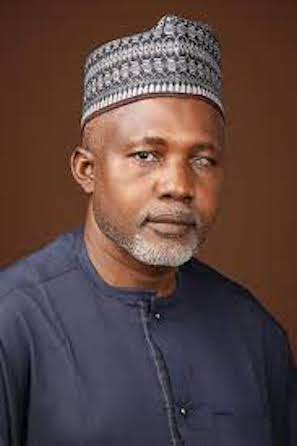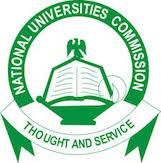NEWS
Ministry Develops new National Teacher Education Policy – Minister

The Minister of State for Education, Dr Yusuf Sununu, said the ministry has developed a New National Teacher Education Policy (NNTEP) to address critical issues such as career pathways, remunerations and teaching standards.
Sununu said this at a two-day 2024 online Conference of Registered Teachers organised by Teachers Registered Council of Nigeria (TRCN) on Wednesday in Kaduna.
The theme of the conference is: “Advancing Teacher Professionalisation in Nigeria Towards Education 2030: Challenges, Strategies and Prospects”.
The conference was supported by UNESCO, Partnership for Learning for All in Nigeria (PLANE), UKaid, Safe the Children International (SCI), TY Danjuma Foundation and DRPC.
Sununu said teachers needed professional preparations through adequate and informed exposure to training, conferences and seminars.
“This will increase awareness and new commitment for effective teaching that will match international best practices.
“The Federal Ministry of Education is making progressive efforts to ensure quality and functional education in Nigeria and restore the dignity of the teaching profession.
“Over 7,200 education bursary awards have been offered to students to study education courses.
“The education ministry’s DOTS policy will ensure that the nation’s educational system is equiped to produce competent and globally ready citizens,” he said.
Sununu also said the DOTS policy was packaged to achieve the renewed hope agenda of President Bola Tinubu.
He said the ministry’s responsibility did not end in recruiting teachers and providing classrooms for teaching and learning.
Sununu said they ensured teachers training and re-training to help achieve major objectives of the nation’s educational system.
He said that this was to equip learners with requisite knowledge and skills to enable and realise their potential and become globally competitive.
The minister also said the conference was apt in the ministry’s collective efforts to reposition the teaching profession toward achieving sustainable development goal (4) and Education 2030 Agenda.
He emphasised that national conferences were critical to all professional bodies which was a symbol of professionalism where people with great ideas rub minds to improve their profession.
Sununu commended TRCN for the milestone it had achieved by institutionalising the online annual conference for registered teachers in a digital era.
He called on all the stakeholders to work assiduously to ensure an enviable and enduring education sector that was imperative for national growth and development.
Also speaking to newsmen on the sideline, the State Coordinator of TRCN, Ms Esther Ayuba, said certification and licencing were major ingredients for the teaching profession.
She said every trained teacher was supposed to obtain a certificate and licence before being allowed to teach.
According to her, a trained, registered and licenced teacher is the most qualified to teach, believing that they can maintain the professional knowledge, skills, values and ethics that binds the teaching profession.
She lamented that many trained teachers were yet to register with the council.
Ayuba, however, said sensitisation by the council had gone far while enforcement was taking place to ensure that only registered teachers were allowed to teach.
“A lot of them have registered now, but have yet to receive their certificates because of the procedures.
”Every trained teacher in Nigeria, whether he/she is teaching or not, must register with the council.
“For professional pride, every teacher should register,”she said.
Describing teaching as the mother of all professions, Ayuba called on the government at all levels to encourage teachers with better welfare and remunerations as obtainable in other countries.
She said at the end of the conference, it was expected that the teachers would be proactive in their areas of specialisation.
This is by knowing that they were professionals and utilised their rights to make an impact and change the narrative in the society.
Earlier, Dr Stella-Maria Nwokeocha, the Registrar of TRCN, said a teacher was an important factor that could not be over-emphasised in the development of education.
She said Nigeria shared in the global concerns of teachers and teaching progression as raised in the global report on teachers by UNESCO on teachers/education 2030.
Nwokeocha explained that the report provided meaningful findings regarding teachers recruitment, retention and professional development.
She also recalled the interest of the AU Commission through its continental education strategy for Africa since 2016 to 2025.
”This is to ensure quality education system and training that would meet the efficient human resources need of the African continent and its core values,” Nwokeocha said.
She. therefore. said, it called for continuous dialogue, workshops, training and conferences such as the annual conference on registered teachers in Nigeria.
The TRCN boss said that the dialogues were aimed at providing necessary supports and encouragement needed to reposition the teaching profession to attain quality education and national building.
She equally said the annual conference was part of the TRCN’s efforts to fulfill its mandate of professionalisation of teachers in Nigeria.
Nwokeocha added that the central focus of the conference was to deliberate and proffer solutions to emerging issues in education and learning in Nigeria and improving teaching outcome.
Some of the participants, Mercy Andrew, a teacher at LGEA Narayi Primary School and Mr David Kunanza, said they were faced with overcrowded learners per classroom and other unfavorable teaching conditions
The duo also said employment of non professionals as teachers has negative consequences on children who end up not learning.
They called on TRCN to push further their plights to the appropriate authorities for actions.
Report says that teachers who participated in the conference attracted 25 professional credit points.
Education
Benue Orders Refund of N106,000 WAEC/NECO Fees charged by School

The Benue State Government, through the Education Quality Assurance and Examinations Board, BEQAE, has directed Jewel Model School, Makurdi, to immediately reverse the N106,000 being charged to parents for the registration of West African Examination Council, WAEC, and National Examinations Council, NECO, describing the levy as excessive and unjustifiable.
The directive followed a series of petitions from aggrieved parents who accused the school of imposing arbitrary examination fees.
Acting on the complaints, the Board summoned the school’s proprietor, principal and members of the Parents-Teachers Association, PTA executive to a meeting in Makurdi where they reportedly failed to justify the amount being demanded.
Speaking during the engagement, the Executive Secretary of BEQAEB, Dr. Terna Francis, clarified that the officially approved fee for WAEC registration was N28,000, while NECO was yet to announce its charges for the 2026 examinations.
“Schools are only permitted to collect officially approved examination fees, with a handling charge not exceeding N5,000 per examination,” Francis stated.
He further stressed that candidates were not mandated to register for both WAEC and NECO, noting that such decisions should be left to parents and students.
“Registration for WAEC and NECO is optional, not compulsory. Any additional costs must be transparently discussed and mutually agreed upon by parents, not imposed without consultation,” he added.
Francis also expressed concern over reports that parents at the school had been denied platforms to air their views, alleging that PTA meetings had not been held for nearly two years and that parents were restricted from commenting on the school’s WhatsApp communication platform.
He equally condemned the practice of routing school and examination payments through the proprietor’s personal bank account, describing it as a breach of accountability and transparency.
“Such practices undermine proper auditing and are unacceptable in a regulated educational system,” he said.
Francis consequently, directed the Director of Enforcement and Compliance Operations, Rev. Fr. Dr. Terungwa Tor, to place the school under close monitoring to ensure full compliance with the Board’s directives.
Warning against the exploitation of parents, Francis noted that schools found imposing undue financial burdens on learners risk severe sanctions, including the withdrawal of their operating licenses.
“These exploitative practices only worsen the problem of out-of-school children, which the government is determined to address,” he said.
Education
UNIZIK: Students Urge FG to Implement Industrial Court Judgment, Reinstate Odoh as VC

Some students of Nnamdi Azikiwe University (UNIZIK), Awka, have called on the Federal Government to fully implement the judgment of the National Industrial Court by reinstating Professor Bernard Odoh as Vice-Chancellor of the institution.
The students, operating under the aegis of the Nigerian Students and Youth Association, UNIZIK chapter, urged the Minister of Education to act without further delay in reinstating Professor Odoh, in strict compliance with the court’s ruling.
President of the group, Chisom Nwangwu, recalled that Professor Odoh was removed from office by the Federal Ministry of Education following allegations that he was not a professor and therefore unqualified to occupy the position.
However, he said the National Industrial Court had since affirmed that Professor Odoh was duly promoted to the rank of professor in 2015 and consequently ordered that all his rights, entitlements and privileges be fully restored.
Nwangwu stressed that respect for court judgments is fundamental to nation-building and should not be treated as optional, urging Nigerians and government institutions to obey court orders if the country is to be firmly rooted in the rule of law.
He expressed concern that the continued failure to implement the court’s ruling, especially in a situation where the office of the Vice-Chancellor was neither legally nor practically vacant, sets a dangerous precedent.
“This persistent disregard for a valid court order undermines democratic values and sends the wrong signal to citizens. Such actions should not be allowed to define us as a people or as a democratic society,” Nwangwu said.
He noted that Professor Odoh is the first alumnus of Nnamdi Azikiwe University to be appointed Vice-Chancellor, describing his removal as regrettable and driven by what he termed malicious claims aimed at frustrating a young academic with a progressive vision for the development of the university.
The student leader also appealed to President Bola Tinubu to intervene in the matter, noting that his administration is anchored on the principles of justice, fairness and respect for the rule of law.
According to him, such an intervention would help reaffirm public confidence in democratic institutions and reassure young Nigerians that justice, fairness and equality before the law remain attainable in the country.
| ReplyReply allForwardAdd reaction |
Education
NUC Opens Nigeria’s University Space to Foreign Institutions

The National Universities Commission (NUC) has lifted the embargo on the establishment and operation of foreign universities in Nigeria, a move aimed at attracting foreign direct investment and boosting the global competitiveness of the country’s higher education system.
The Executive Secretary of the NUC, Professor Abdullahi Yusufu Ribadu, announced the decision at the weekend during the 10th convocation ceremony of Gregory University, Uturu, Abia State.
He said the policy shift was designed to deepen international collaboration and strengthen the quality of university education in Nigeria.Represented at the event by Offor Chukwuemeka, Ribadu explained that foreign universities would be allowed to operate in Nigeria through six approved partnership models: franchise arrangements, branch campuses, twinning or articulation programmes, open and distance learning, acquisition, and teaching institutions.
He said the Commission had also introduced a Code of Governance for private universities to ensure uniform standards, transparency, and accountability in their operations. In addition, Ribadu noted that the NUC had carried out major curriculum reforms, replacing the Benchmark Minimum Academic Standards (BMAS) with the Core Curriculum and Minimum Academic Standards (CCMAS).
Under the new framework, he said, the NUC provides 70 per cent of compulsory core courses required for graduation, while universities are allowed 30 per cent flexibility to customise their curricula in line with their areas of expertise and emerging global trends.
The NUC boss emphasised that the reforms were geared towards equipping Nigerian graduates with 21st-century skills and enhancing their employability. He commended Gregory University for its contributions to educational innovation and development.
Abia State Governor, Dr. Alex Otti, in his remarks, praised the founder of the institution, Professor Gregory Ibe, for his vision and commitment to quality education. Represented by the Commissioner for Tertiary Education, Professor Uche Eme Uche, the governor reaffirmed his administration’s support for educational transformation in the state.
The Vice-Chancellor of Gregory University, Professor Cele Njoku, disclosed that the university had grown from three colleges to 12 in 13 years, now boasting over 53 academic departments. She added that all eight academic programmes submitted to the NUC in 2024 received full accreditation, while new courses, including Artificial Intelligence and major foreign languages, had been introduced.
Founder of the university, Prof. Gregory Ibe, represented by the Pro-Chancellor, Prof. Augustine Uwakwe, said the institution was established to make quality education accessible to Nigerians and pledged continued investment in education.
The overall best graduating student, Master Onyechere Chinedum Yadirichukwu, who graduated with a CGPA of 4.91, urged young Nigerians to take responsibility for shaping the nation’s future.
The convocation ceremony also featured the award of honorary doctorate degrees to former Enugu State Governor Ifeanyi Ugwuanyi; Chairman of the Abia State Council of Traditional Rulers, HRM Eze Linus Nto Mba; and Chairman of the Manufacturers Association of Nigeria, Imo State chapter, Dr Okenze Sylvester Obinna.

















